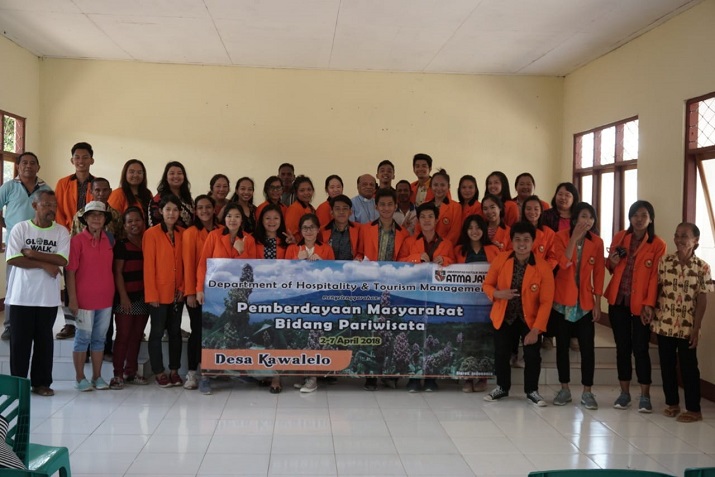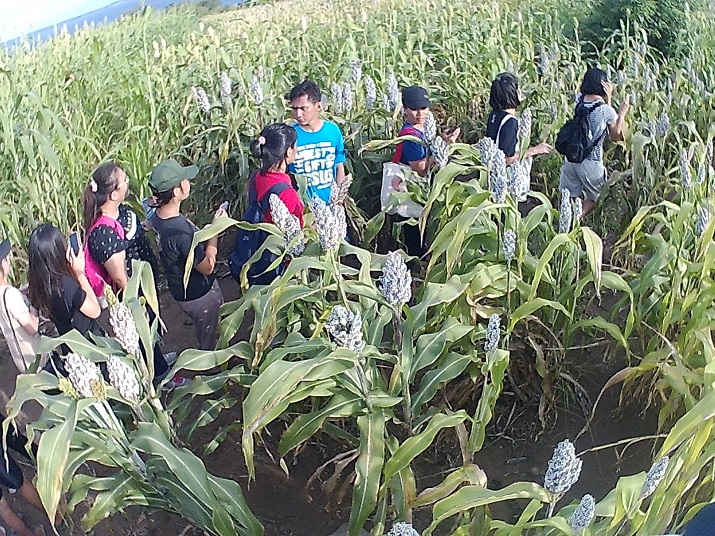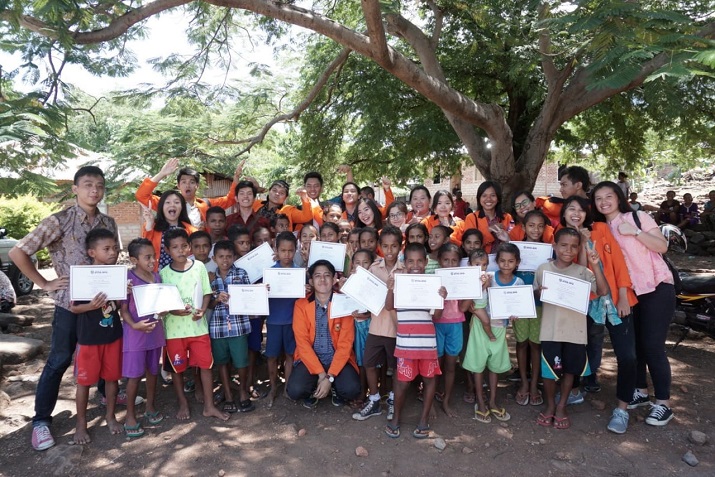
ASK
ME

REGISTER
NOW

Atma Jaya Hospitality Study Program Students Visited Likotuden hamlet, East Nusa Tenggara
Atma Jaya Hospitality Study Program arranges socialization and coaching to promote awareness to manage the sustainability of the touristic site. By involving students and lecturers, the department sees this action to support the tourism industry.
Twenty students under the Tourism Planning Class visited Likotuden Hamlet, Eat Nusa Tenggara (NTT). Split into a few different teams; each team had a mission to design Nautical Tourism activity, such as coral reefs, beach and diner recreation, culinary, and agrotourism.
The Likotuden hamlet is located in Kawlelo Village, Larantuka, East Flores, East Nusa Tenggara. This hamlet is not only famous for its natural beauty but also not Sorghum plant - a versatile grains-plant used as a source of food, animal feed, and industrial materials.
"We discussed possible ideas to be implemented on the area," Said Imanuel Anggonoto, participants of the program.
His team design an agrotourism plan. The idea is to utilize Sorghum as the main attraction to promote the hamlet as "Sorghum Village" - follow with a proper introduction on how to manage the plantation.

Students in the Sorghums Fields
"The Sorghums has a potential for agrotourism. We try to formulate ideas of agrotourism to implement in the highlands. We come up with the plan of planting based on level ground - from lowest to highest,"
"Since the residents are not familiar with the plantation technique, they tend to do it carelessly. By doing so, it might add to the aesthetic. The ground contour is beneficial for terracing," Said Imanuel.
The team wants to terraced the Sorghums to help tourists to see the beauty of sorghum plants more closely. "Afterwards, we recommend it to be arranged like a paddy field, where there were several roads/pathways and plots. With these pathways, we can make a trekking program in sorghum gardens, like any other agrotourism in highland areas," he explained.
Sorghums are unique plants in Likotuden; its a type of plant similar to rice plants but have a height of more than one meter. We can find a few diverse kinds of sorghums in the village, with each unique: Kuwali, Okin, Numbu, and Super. Each type has it‘s characteristic, Kuwali sorghum (1.5-1.9 meters high, blackish white grains), Okin (2-2.8 m, yellowish), Numbu (2.2-3 m, green grains), and Super 1 (> 3.5-4 m, grains orange).
Another participant, James, explained that his group provided knowledge to process sorghum plants into food, especially the signature dish for tourists.
"We tried to brainstorm on what kind of sorghum-based culinary that the villagers may replicate for tourists. We teach the village moms (new knowledge about processed sorghum) with prepared recipes. One of it is making sum-sum porridge from processed sorghum flour," said James.

The Students and Likotuden Residents Having a Group Photo
This dish, expectedly, may trigger their creativity to create and serve other menus and also may expand Likotuden hamlet residents’ finances.
Imanuel and James agree such activity is beneficial for students to broaden the horizon of the world through interacting with people who are different in terms of their background, economy, and character. Learn, play an active role in, and maximize self-potential to help the community.
"This activity has lots of social value. We understand their lives and interact more with friends and family in the hamlet. The absence of a mobile network brings us closer," said Imanuel.
In line with Immanuel, James said that social communication skills are essential. Plus, a way of thinking critically in solving a problem. "At first, we were confused about what to develop. But through discussion and teamwork, challenges can be addressed. The most important thing is we can get to know the community‘s social culture and participate in its development," said James. (HCR)